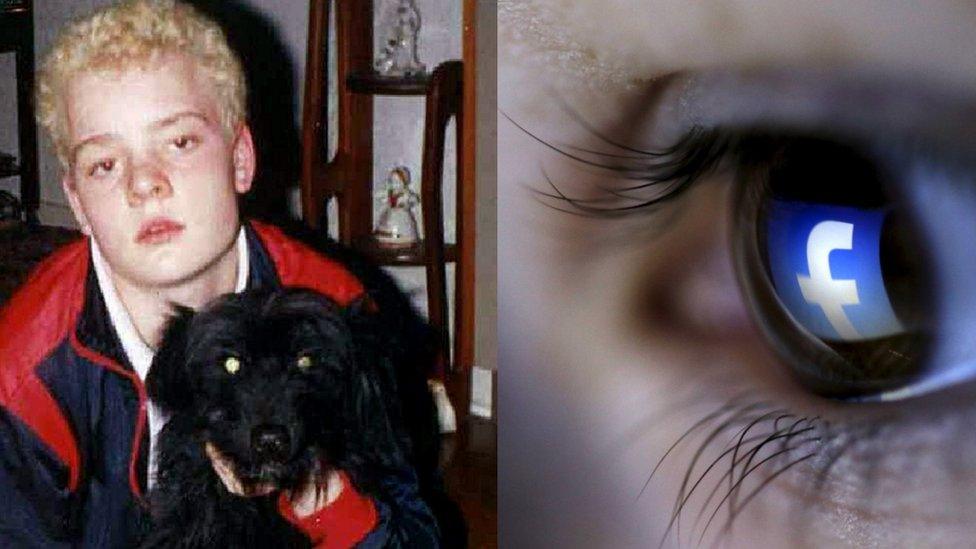Angela Wrightson: Failings revealed over torture-murder
- Published
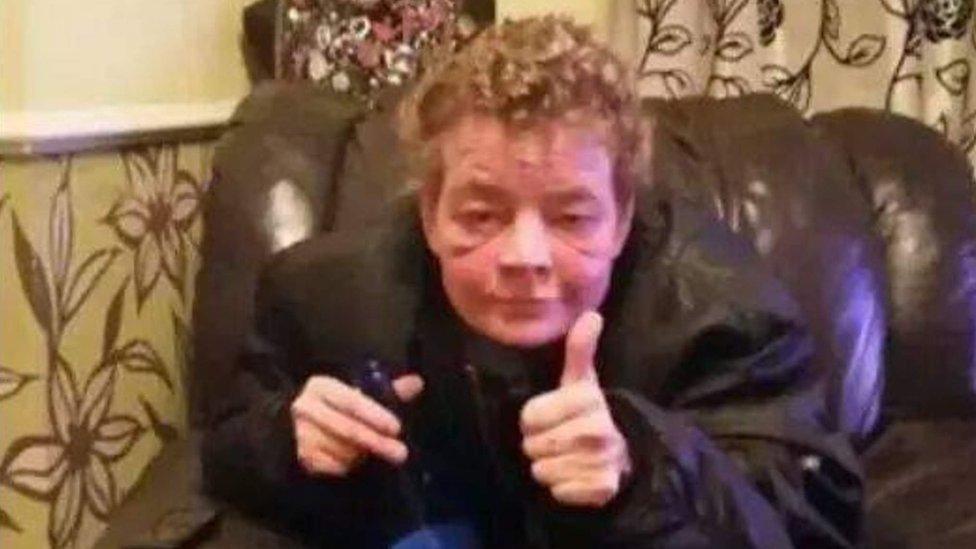
Angela Wrightson suffered more than 70 separate slash injuries and 54 blunt-force injuries
Two girls who murdered a vulnerable woman led "chaotic lives" and were known to social services for drinking, running away and taking drugs, a report has concluded.
Angela Wrightson, 39, was subjected to a seven-hour attack in her Hartlepool home by the pair, then aged 13 and 14.
Serious case reviews revealed multiple failures by officials but concluded the murder could not have been prevented.
But they found the girls' parents were unwilling to accept parenting help.
Ms Wrightson was beaten with a shovel, a TV, a coffee table and a stick studded with screws during the attack in 2014.
Both girls, who were not named in court because of their age. were jailed for a minimum of 15 years in April last year.
Three separate reports tell of "overly optimistic" care services, a failure to address poor parenting and an "insufficient understanding" of neglect.
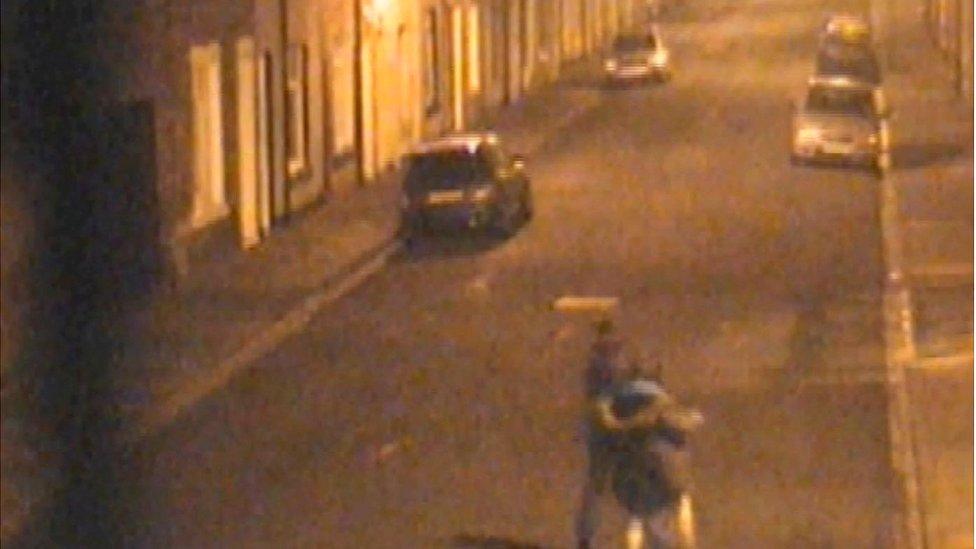
The two girls returned to Ms Wrightson's home in the early hours of 9 December, where they would continue the attack
The reports found the younger of the two girls, referred to in the report as "Yasmine", was subjected to physical and emotional abuse by her parents.
But they concluded officials were too ready to accept her mother's claims she was disruptive because she had been "spoilt".

Analysis
by Bethan Bell, BBC News
The reports stop short of allocating blame - but there is no doubt parental neglect emerges as a root cause of what happened that terrible night.
Angela Wrightson, "Olivia" and "Yasmine" all had difficult backgrounds. Ms Wrightson's chronic alcoholism was said to have stemmed from an unhappy and traumatic childhood spent in different care homes. The times she had felt the happiest and safest were those times when she was in prison. She was vulnerable and lonely.
Olivia had a fractured, abusive and unstable upbringing. One of six sisters with different fathers, drug and alcohol abuse and physical violence were common in both her mother's and father's homes. She once returned to a care home with a black eye caused by her mother.
The report highlighted a time when aged 12, Olivia had been in a serious car accident. She had to spend two weeks in hospital. Her father, on the one occasion he visited, was "unsupportive and complaining of the trouble she had caused him". Her mother did not visit at all.
Yasmine's parents abrogated all responsibility for her. The review described their parenting as "hostile, physically abusive and blaming".
Both had alcohol problems and a history of domestic violence. They showed no insight into how their behaviour could affect their daughter.
At a meeting with social services, her mother said: "Yasmine has hurt me so much, it will be hard to forgive her." At the time, Yasmine was 12.
It is perhaps not surprising that both girls sought comfort in aggression, roaming the streets and drinking.
Both Olivia's parents refused to take part in her Serious Case Review.
Ms Wrightson's mother refused to engage in the Safeguarding Adult Review.

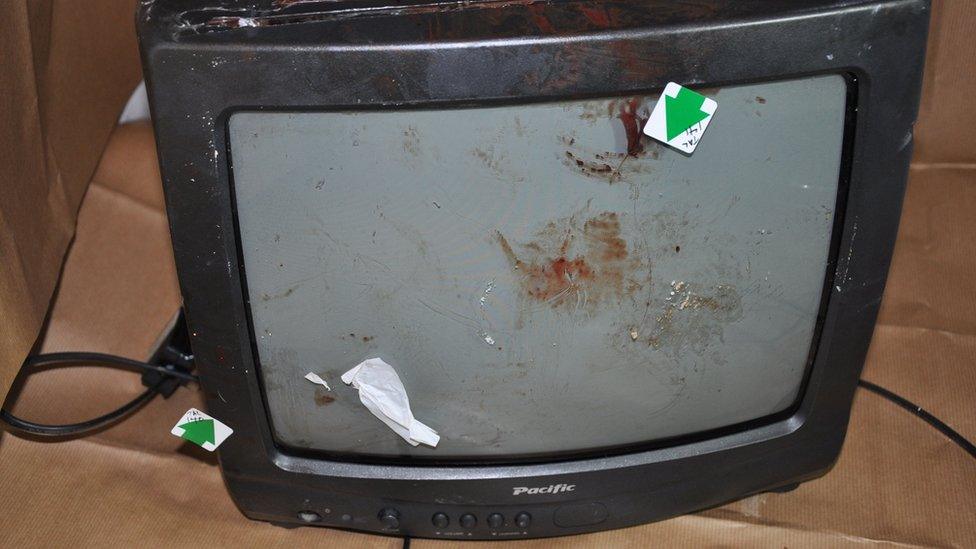
The girls dropped a TV on Angela Wrightson's head
Report writers said the older girl, referred to in the report as "Olivia", had a chaotic home life and was placed into care after her mother claimed she was "going to parties, possibly having sexual intercourse and hitting" younger siblings.
The younger girl also confessed to a care worker that she had spent a weekend drinking and smoking cannabis with friends, and had spent a night with a boy, but denied any sexual activity.
'Inability to care'
Two months before the murder, the older girl was arrested for assaulting three members of staff and causing damage to the premises.
The reports into both teenagers found their parents were quick to criticise their daughters' behaviour, but unwilling to accept help to improve their parenting.
About the younger girl's parents, the report stated: "They blamed Yasmine for their inability to be warm and caring to her."
Of the older girl, it said: "When the reviewer visited Olivia in prison, she expressed her feelings that she had always been held responsible for the family problems, both by her parents and, she felt, by professionals."
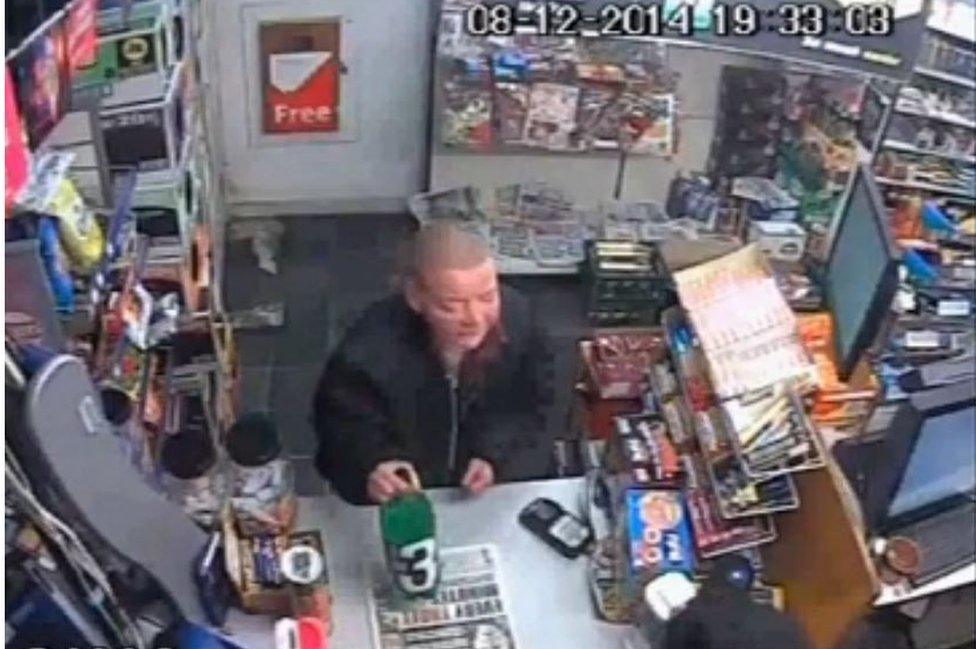
Ms Wrightson, a known alcoholic, bought cider shortly before being battered to death
Ms Wrightson, who was known locally as "Alco Ange", had also received a high level of intervention from social services.
The report found she had received help for alcohol addiction, but that it ceased in 2011.
Between January 2012 and her death, Ms Wrightson made 219 calls to the police with another 253 made by people about her.
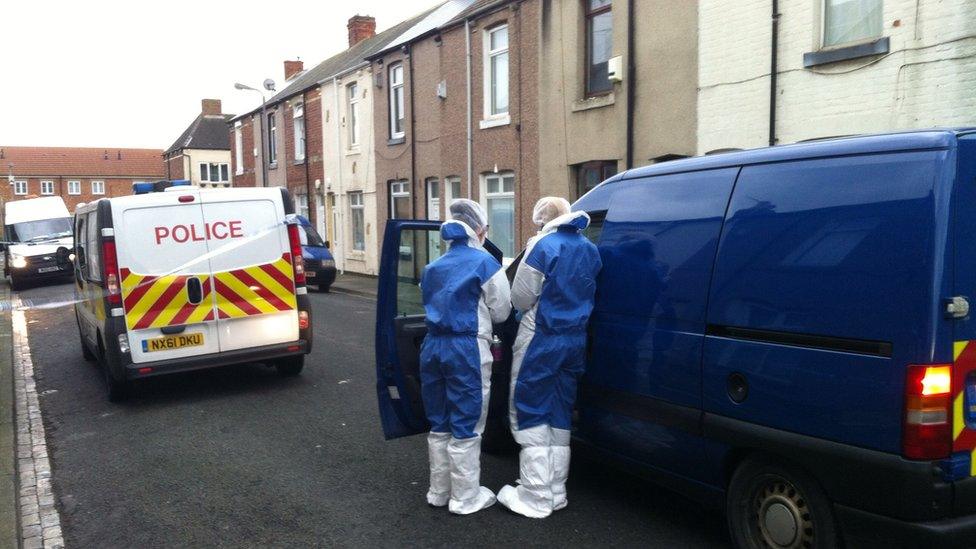
The 39-year-old's body was discovered by her landlord at the property in Stephen Street
There were also reports of her being "bothered" by young people whom she was too afraid to take formal action against due to a previous "serious" altercation with a teenager.
"There was growing evidence in 2014 that (Ms Wrightson) was being targeted by young people and adults," the report said.
It concluded there was a lack of awareness among various agencies about how she should be treated and best helped.
'Home invasion'
Because officials did not fully speak to each other, the "fullest picture of [Ms Wrightson's] experience and risk" was not complete.
Her family has said they want to see her situation treated with the same seriousness as domestic abuse.
The report said: "[The family] say the number of vulnerable adults whose homes are taken over and who suffer regular abuse are unknown, yet there is no law making this type of home invasion illegal."
Niece Rachel Tressider said they hoped to launch "Angie's Law" to protect vulnerable people against harassment, bullying, torment and extortion.
She said: "This is what she went through. In the report it said she was 'home jacked' by two females who used her property... without her permission.
"It's an horrendous thing, a very serious thing, [it's] not recognised and it needs to be, and that's where Angie's Law would come in."
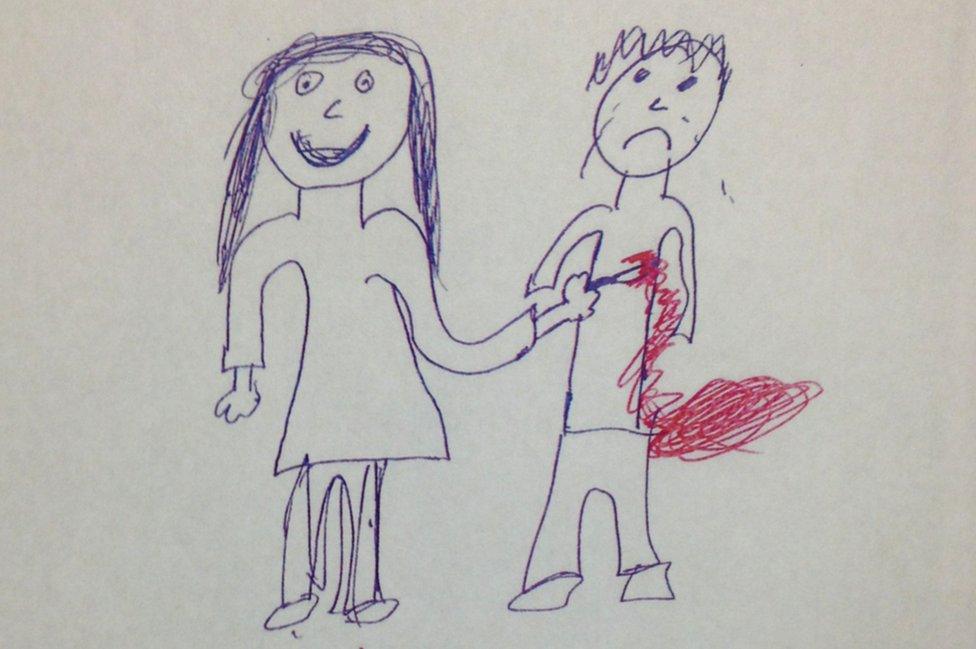
The older girl was encouraged to use drawing as a way to channel her anger. This picture was found in her room after her arrest
The report into Ms Wrightson made five findings calling for better communication between agencies, increased awareness of mental health issues and improved connection between children's and adult's services.
The reviews about the girls made six, including the need for improved understanding of the effect of neglect on adolescents and removing a "tendency to sympathise with parents, leaving emotional abuse unidentified and children vulnerable to continued abuse".
'Beyond professional control'
Dave Pickard, the chairman of Hartlepool Safeguarding Children Board, said there was "a very difficult balance" between keeping children with their families and putting them into care.
He said: "Both families received a great deal of support and guidance from a consistent, caring and hard-working group of professionals.
"Neither girl had any history of violent offences, although they were, at times, angry, abusive, hostile to those around them.
"There is considerable evidence [they] experienced abuse and neglect which had had an impact on their wellbeing and behaviour.
"Although we have learnt lessons about how we understand adolescent neglect more broadly and the likely trauma it creates, we cannot predict how this will manifest itself on a daily basis or how it might interact negatively with other factors.
"These issues are beyond professional control."
- Published7 June 2016
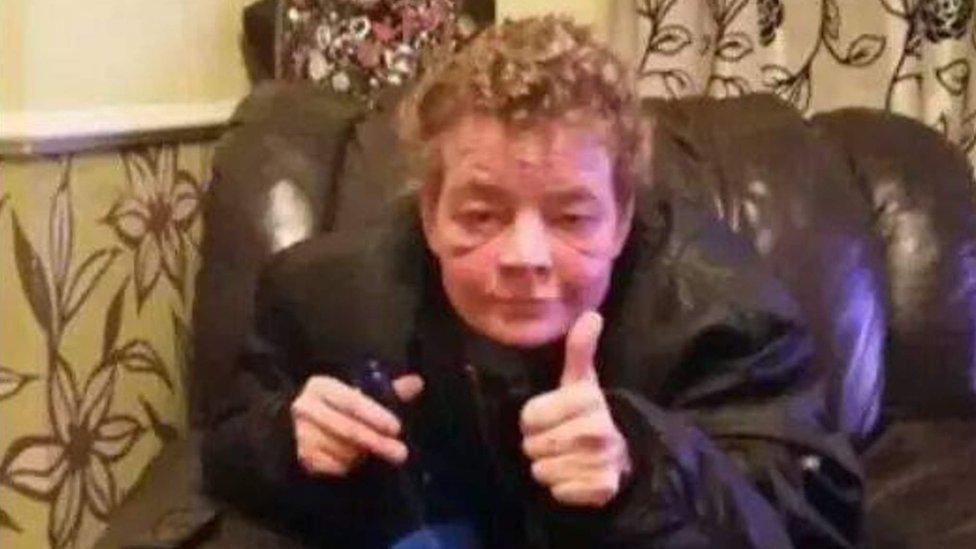
- Published2 June 2016

- Published13 June 2017
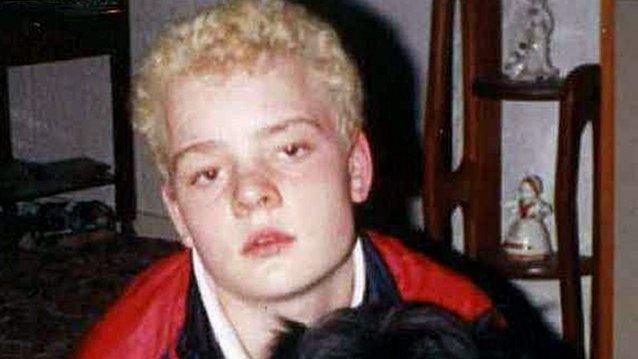
- Published7 April 2016
